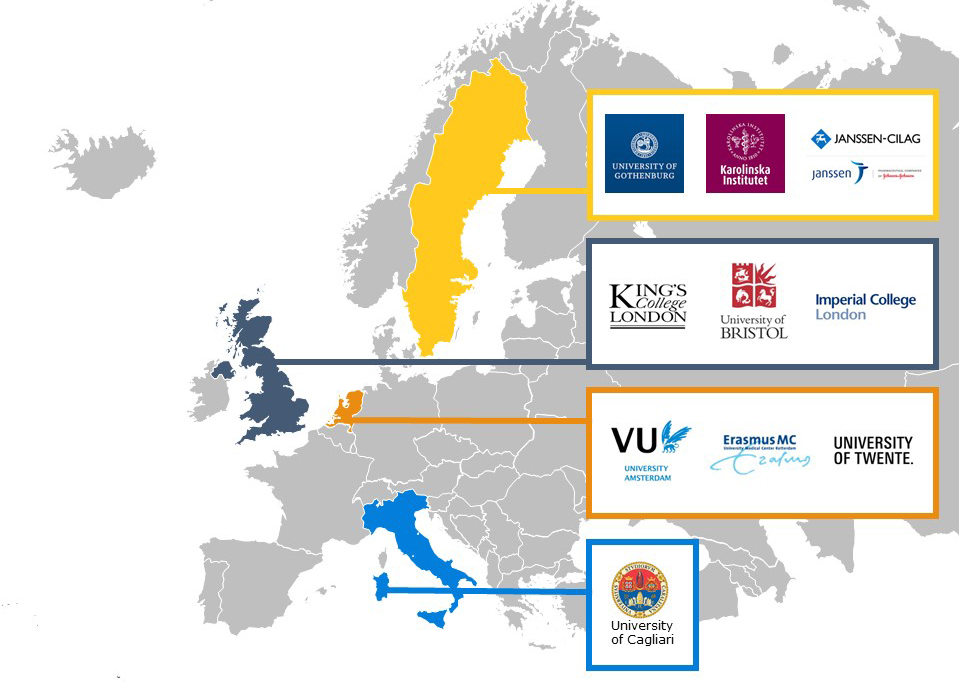This article contains information of poster "Phenome-wide association study of caffeine PRS and mental health outcomes across the lifespan using the ALSPAC pregnancy cohort " presented by Laura Schellhas, ESR in the CAPICE project, at the 4th Mendelian Randomization Conference in Bristol on July 17, 2019.
Background: Consumption of caffeinated beverages is widespread, and there is a growing interest in the effects of caffeine on health outcomes. Observationally, caffeine consumption is comorbid with psychiatric symptoms and other substance use (Kendler, Schmitt, Aggen, & Prescott, 2008; Lara, 2010; Treur et al., 2016). Using polygenic risk scores for caffeine consumption as instrumental variables can help to understand the effects of caffeine on such health outcomes, as genetic variants should not be related to common confounding variables, due to random segregation and assortment of alleles (Davey Smith & Ebrahim, 2003). Genome-wide association studies have discovered genetic variants associated with caffeine consumption in the general population (The Coffee and Caffeine Genetics Consortium et al., 2015), but uncertainty remains regarding whether the same genetic variants can be applied to proxy caffeine consumption across the life span and they show pleiotropic associations with comorbid phenotypes.
Aim: We applied the phenome-wide association study (PheWAS) paradigm to (1) validate the PRS for caffeine consumption for different sources of caffeine (coffee, tea and cola) in four time points in life (offspring: childhood, adolescence; mothers: pregnancy, adulthood) and (2) explore potential pleiotropic effects of the PRS with a variety of mental health phenotypes and substance use behaviours (smoking and alcohol consumption) during these time-points (3) investigate the intergenerational transmission of maternal PRS for caffeine consumption on to offspring.
Method: Data from the Avon Longitudinal Study of Parents and Children (ALSPAC) was used, with available genotype data of 7977 children and 7921 mothers. PRS were derived from 8 genetic variants found to be associated with coffee consumption in the general population (The Coffee and Caffeine Genetics Consortium et al., 2015). In addition to phenotypes for caffeine consumption (total caffeine, caffeine from coffee, tea, and cola in mg/day), mental health, substance use, personality, and sociodemographic phenotypes were included. Overall, 13 phenotypes for children (7-10 years), 47 for adolescents (13-24 years), 49 for pregnant women (measured at 18 and 32 weeks of gestation) and 34 phenotypes for mothers (assessed either before pregnancy or after children reached age 4) were included.
Results: The PRS was found to be positively associated with overall caffeine consumption during 18 (β18w= 5.85, 95% CI18w [3.09, 8.61), p18w = 3.28 e-5) and 32 weeks of pregnancy (β32w = 6.32, 95% CI32w [3.74, 8.89], p32w = 1.56 e-6), as well as caffeine consumed separately through tea (β18w= 2.29, 95% CI18w [0.76, 3.83], p18w = 0.003, β32w= 3.42, 95% CI32w [1.79, 5.03], p32w = 3.65 e-5) and coffee (β18w = 3.67, 95% CI18w [1.20, 6.14], p18w = 0.004, β32w = 3.59, 95% CI32w [1.28, 5.91], p32w = 0.002). For cola, the PRS was negatively associated with consumption at 32 weeks (β32w = -0.20, 95% CI32w [-0.38, -0.03], p32w = 0.02) but not associated at 18 weeks of gestation (β18w = -0.04, 95% CI18w [-0.39, 0.31],
p18w = 0.83) and not associated with consumption in mothers 97 months after pregnancy (β97m = 0.004, 95% CI97m [-0.002, 0.01], p97m = 0.21). The PRS in offspring predicted neither caffeine consumption in children 8 years of age (β8y = 0.55, 95% CI8y [-0.33, 1.44], p8y = 0.22) nor in adolescents at 13 years of age (β13y = 1.1, 95% CI13y [-0.15, 2.35], p13y = 0.09). After Bonferroni adjustment for multiple testing, neither mothers’ nor offspring’s PRS were found to be associated with our included phenotypes. Lastly, maternal PRS for caffeine was not associated with phenotypes assessed in children under 10 years of age.
Discussion: Overall, our results indicate that PRS for caffeine consumption are valid instruments for assessing actual consumption of tea and coffee, as well as total caffeine consumption in mg/day in adults and pregnant women but not in children. Lack of associations between offspring PRS and caffeine consumption is likely due to low numbers of individuals consuming caffeine in the available age groups (8 and 13 years of age). Contrary to tea and coffee, cola consumption was only found to be associated with PRS for caffeine at 32 weeks of pregnancy with an opposing direction of effect, indicating a false positive finding for this timepoint. Further, our results suggest that the genetic variants used for caffeine consumption are not related to mental health or substance use outcomes.












